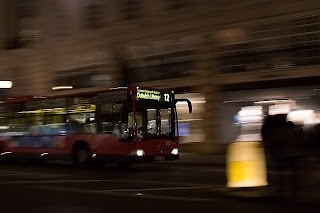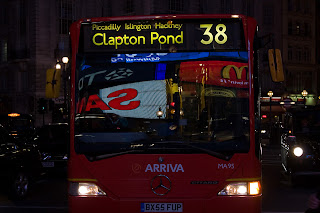Interesting article in the SMH today;
I identify with it totally, glad to know someone else who has ventured to discuss it.
If anything London is a much more mutated version of that found in Sydney. But the similarities apply easily, the two places are so similar in that way.
Look forward to reading the book!
.........
Welcome to the Selfish CIty
Brigid Delaney
IMAGINE you are a modern explorer. But instead of discovering a country, you wish to journey into the inner lives of its inhabitants. What you wish to discover is how much that country is in thrall to consumer culture and to the virus of affluenza. How much do people measure their self-worth by what they own, how they look and where they live? Have they developed antidotes to the disease? How strong is their sense of self?
What would such an explorer make of modern Sydney?
Driving from Sydney Airport to the city, the 53-year-old British author and psychologist Oliver James noticed a few things. The first was "those biscuit box" warehouses lining the landscape: "Flat container warehouses all bursting full to the seams with consumer goods. Then I got the feeling of getting into a particularly confusing traffic system."
But on the streets of "this beautiful, spacious city" where the natives roamed, he started feeling more unsettled.
Oxford Street was like the "Tower of Babel, a confusing polyglot in its diversity". There were people from "all the ends of the Earth", creating a feeling of "identitylessness, so you feel like you could be anywhere".
Bondi "felt a bit more Australian". But there was also an aggressive vibe. "This kind of 'f--- you, we're rich' type thing." And then there was the beach culture of the body, which made James reflect that it must be hard to be a woman in Sydney.
But it was only when he was invited into homes that James got the full measure of the sickness. He found house-proud citizens who had million-dollar mortgages and renovated kitchens but an emptiness that ran to the marrow.
In a "pokey flat" in Paddington he interviewed "Sandra", 31, struggling to cope with her lack of status as a mother. She was mourning her 25-year-old self - and the perceived loss of her figure. She pulled out old photos and said: "In trendy areas like this one, the latest fashion involves really tight clothes; to wear them you have to lose weight."
James says: "The virus impedes them from enjoying motherhood in a number of ways." Getting stuck on the property ladder is one, as is "the feeling they have lost their physical allure to which they had become so addicted before marriage".
He met "Will", a psychiatrist-businessman who works 18 hours a day. Will, like many who have caught the affluenza virus, has commodified a range of values that used to exist outside the market place. As well as the home becoming a commodity, friendship is now increasingly being seen as "what's in it for me".
Will "mentioned no relationships in his life that are not in some sense professional … When asked what he hopes to achieve by working all his waking hours he seems to have no idea at all".
Perfect bodies and houses but a "lack of authenticity" characterised many of his Sydney subjects.
In almost all of James's case studies there is material wealth, but a terrible sadness at their core. This sadness, says James, is living in a society where you feel valued for your possessions, status, house and looks. The accumulation and maintenance of these things keeps you on a treadmill that leeches life of real meaning.
That meaning might involve reading a book, teaching a child how to thread a daisy chain or helping a friend move house. They are things that don't lead us to "achieve anything", and do not provide money or status.
James's book Affluenza, released in Australia this week, is a culmination of research, interviews and an eight-country "mind tour". The countries - the United States, Russia, New Zealand, Australia, Denmark, Singapore and China, as well as Britain - are all at various stages of contracting the affluenza virus. Some countries, such as China, have built up immunities to it - such as coming to capitalism late, having a strong family structure, and the teachings of Confucius which say "your best is good enough".
Likewise the Danes, with their progressive social policies and a relatively small gap between rich and poor, do not have a rapacious desire to keep up with their equivalent of the Joneses.
Cities struck by the virus, including New York and Sydney, have similar characteristics. Their residents are likely to feel insecure. "Constantly comparing your lot with others, especially those who have more than you, is not a prescription for feeling safe," Jones writes. This creates anxiety, "the proverbial bottomless pit" of never being quite happy enough with what you've got. "Modern capitalism then comes charging in on its white horse with a host of false panaceas: antidepressants, booze, drugs, plastic surgery and shopping."
Another symptom of the virus is alienation. A society, says James, that puts a low priority on connecting with family, friends and the community means that individuals will feel estranged from these bonds. Friendships become a matter of self-interest, while the high cost of child care sets up a pattern of "working to live" and places stress on relationships.
The virus has also warped how we love. "As people become more and more insecure and desperate for intimacy and someone they can trust, they place a higher value on intimacy. To that extent they invest heavily in the big relationship and of course relationships weren't built for that. We need to be less novelty-seeking and kicks-based on our perspective of partnerships. There's a big distinction between the illness of being in love - it's like drugs - and finding someone you're compatible with who you can make babies with and the very difficult task of raising children properly."
People susceptible to the virus also feel a lack of control over their lives - they are less likely to turn down work they hate if the money's good. They stay in relationships because they are uncomfortable being on their own, or they are serial monogamists, trading in partners in an elusive search for "the one".
They have mortgages they can't really afford because they don't want to be "left behind" in a property boom, and their voting patterns are also likely to reflect this "selfish capitalism". James sees a connection between John Howard's policies of border control and the Tampa issue, and elections swayed by questions of interest rates, as further symptoms of the virus run rampant.
The diagnosis for Sydney makes grim reading, with an increase in depression running parallel with an increase in prosperity. "Statistics suggest a shift in hopelessness and despair as a large part of the Australian population are trapped with mortgages [and] trapped with American values. It makes sitting on Bondi beach even harder," says James.
Yet still we sit on the beach, staring outward rather than inward, because escaping the virus requires "an exceptionally strong sense of self".
Get out of Sydney and the virus may not be as strong. James believes that people who gravitate towards capital cities and high-powered jobs are a "self-selecting group of people", many of whom "are made to feel worthless as children, who are now competing viciously with each other".
Of surprise to James on his "mind tour" was that "the people I met who had wellbeing had some kind of spiritual practice". For James, spiritual practice is yoga. Whatever your practice, having a sense of spirituality is better than having none, he says.
"Quite apart from the question of whether there's a God, if you pursue ethical practices - for example with Christianity - you're much less likely to sleep around or use drugs and come unstuck."
James says values instilled by parents in children also have a major effect on immunity to the affluenza virus.
But what of the bleak warning in W.B. Yeats's poem The Second Coming - "Turning and turning in the widening gyre/ The falcon cannot hear the falconer;/ Things fall apart; the centre cannot hold" - where a kind of atomisation is irreversible?
If we are now generations away from values of close kin and community, and religion, can such values be retrieved if they are not in our lived memory? Have parents instead passed the values of "selfish capitalism" on to the next generation?
James is optimistic: "I'm beginning to feel a bit spooky about it but if human beings are miserable for long enough, they will start casting around for something different; there will be a rediscovery. Trying to get back to basics; it's a very human thing."
Global warming may be the wake-up call that we need. "I have a conviction that we are going in the right direction because of climate change. This requires that even the most insane person has to rethink things," he says.
Selfish capitalism - the ethos that has has defined our age - could be something of a passing phase, akin to communism, says James. "Selfish capitalism gobbles everything in its way but it will lose like communism, where people felt 'we don't want this any more'."
He predicts that a decline of the United States' importance will lead to a decline of selfish capitalism. "The overthrow of the American empire is in sight because America is very vulnerable right now. China could fall apart and call in its debts."
With the end of America as the dominating world power, its cultural dominance too will wane, and that can only be a good thing for Australia, says James.
When we wake up from sleepwalking though these selfish times, he thinks we'll be angry - and we'll take our anger out on politicians.
"The great deception is that we are part of the prosperity. Australians may have more money but a lot of it is eaten up by property - all the increase in actual wealth has been by the very rich. How much longer can you go on pulling that stunt?
"There may be a point where the English-speaking middle classes and the working class wake up and realise they are not rich at all. The deception is the idea of meritocracy. It turns out it was a con - there is no trickle-down effect."
Look back in anger? That may not be a bad thing, says James, particularly if it's the glimpse of our reflections in the mirror that acts as a catalyst for change.
Affluenza is published by Vermillion, $39.95.
OLIVER JAMES'S TIPS FOR AVOIDING AFFLUENZA:
> Be authentic (not sincere)
> Vivacious (not hyperactive)
> Playful (not game playing)

























